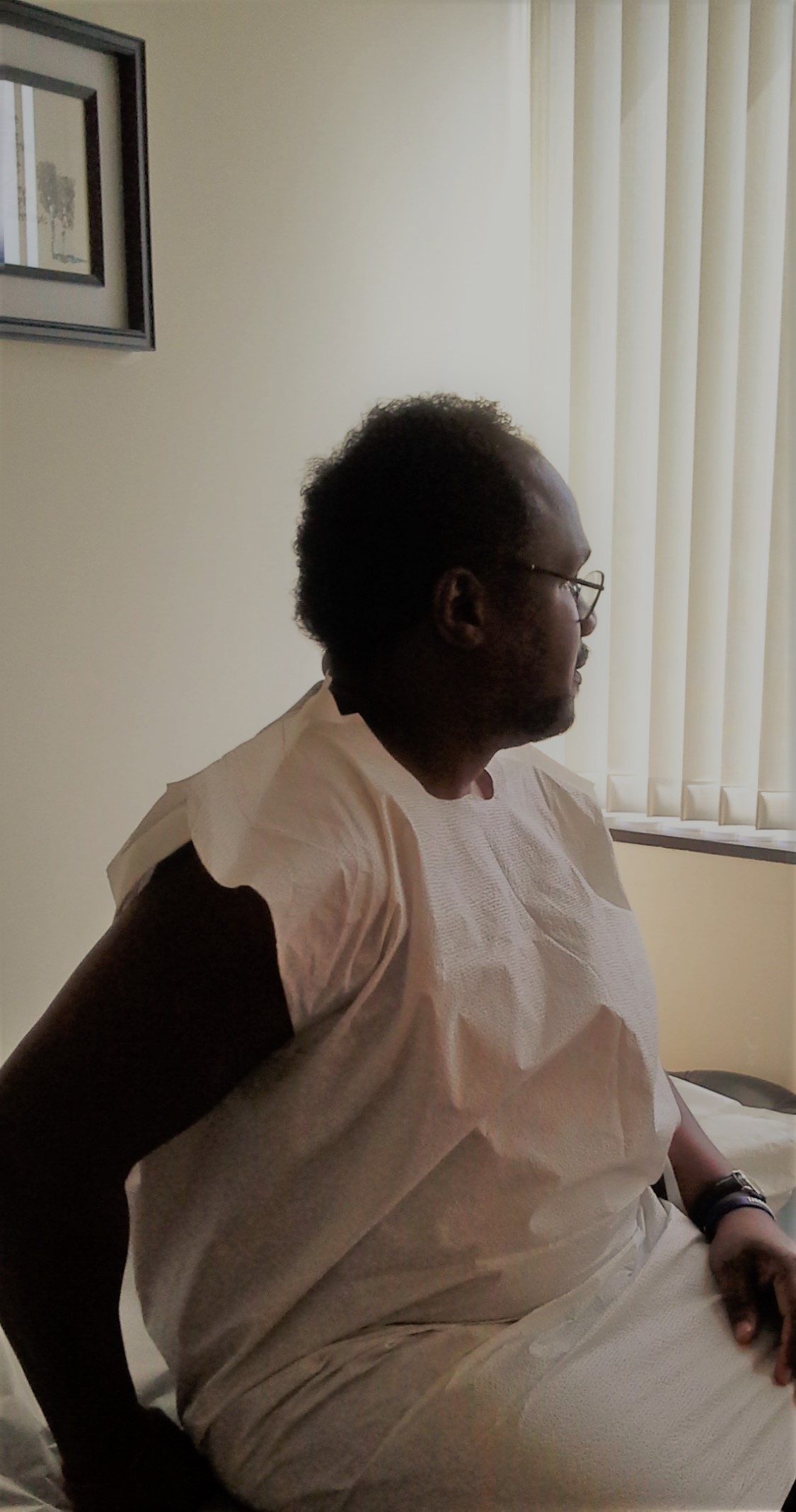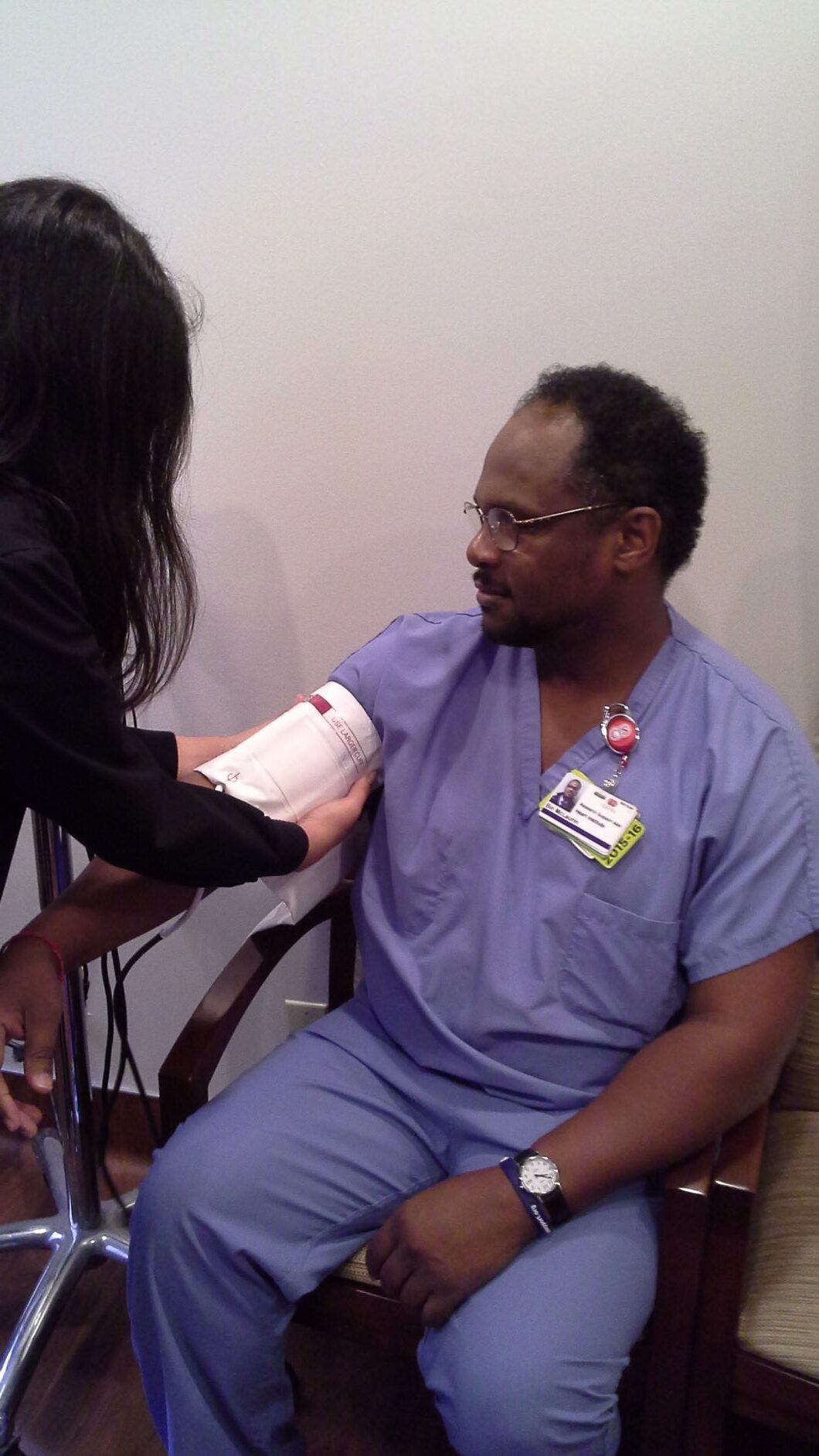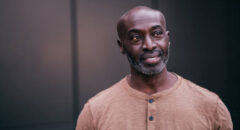
Photo courtesy of Bin McLaurinFor many men in the Black community, the conversation around cancer (or health in general) is somewhat taboo. Conversations around illness, prevention and family health history are often avoided until someone in the family is diagnosed with an illness.
“Looking back, cancer was not talked about openly in the African American community I grew up in,” prostate cancer survivor Bin McLaurin says.
“I had no real perspective on any of the symptoms that go along with prostate cancer and the conversation about prostate [cancer] really had never been discussed in my family and with any of the men that I knew. So I didn’t really have any kind of awareness of my prostate and prostate cancer or issues with the prostate,” he adds.
Fortunately, his diagnosis prompted an open dialogue with his family.
“I would often hear about relatives that were sick with something but we never really knew the details. It was never disclosed–maybe after they passed– that they had cancer. It was almost spoken in a hushed tone like there was kind of a shame around it or that it was not to be talked about,” the Scottsdale, Arizona native shares. “I certainly reached out to my immediate family and my cousins and all the men in my family, and the women as well, because I wanted them to know that at the age that I was (in my 40s) that I had gotten prostate cancer. But also if it could happen to me, at least go get checked. Oftentimes it is the women in our families who encourage the men to go get their health checks. So yeah I certainly reached out to everybody to try to get them to start normalizing that conversation around cancer and cancer screenings and knowing when to get screened and knowing their health status.”

McLaurin, who recalls having a “lingering sense” that something was wrong with his health six months prior to his diagnosis, also found little guidance in the medical community when he voiced his concerns.
“The questions that I had about my diagnosis–the stage of cancer that I was diagnosed with and why did it impact men of color at such a higher rate than others–I didn’t really get specific answers for and that’s really because with prostate cancer and African American men, there’s not a lot of research that had been done and we’re talking about back in 2014,” McLaurin shares. “There had not been a lot of research done with African American men and prostate cancer so I think the questions that I had there weren’t a lot of answers to unfortunately. I think the doctor just didn’t have the research to answer my questions.”
RELATED: Prostate Cancer: The Basics Every Man Needs to Know
There also wasn’t much literature for men of color being passed around the doctor’s office, which prompted McLaurin to begin conducting his own research.

What he found was startling.
Around one in six Black men will be diagnosed with prostate cancer at some point in their life. Black men are also twice as likely to die from prostate cancer than other men.
“Those are the kind of statistics that started to worry me and I was seeking all of the answers to the questions [that] impacted me because I was facing a crisis in my life with prostate cancer, and when you don’t know; it’s almost like you start to






